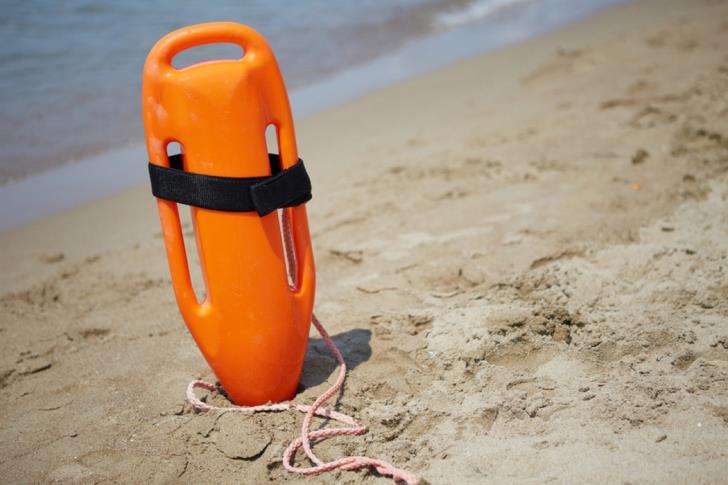This is news that unfortunately was not written or broadcast by any media. But if it was written, it could start as follows: "With a warm applause, hundreds of tourists rewarded the successful attempt of Cypriot lifeguards to rescue a man who was in danger of drowning. The rescue was carried out in front of the eyes of these hundreds of tourists who anxiously watched the effort and broke out in a warm applause when the man in danger was transported safely to land and was picked up by ambulance.
Such rescues of human lives and human moments take place on our beaches almost daily and rarely see the light of day, with lifeguards pointing out the opposite. That is, when a tourist drowns, this should be news from the media.
On the occasion of a recent incident on a beach in Ayia Napa, where several hundred foreign tourists (but also some Cypriots) watched such a drowning rescue by lifeguards of the municipality and applauded them, we followed through this report the unknown daily struggle of the 37 lifeguards of the Municipality of Ayia Napa and consequently all their colleagues from Cyprus. An invisible race that honors Cyprus and emerges as a safe tourist destination in terms of the lifeguard service provided on its beaches, through the hundreds of comments made on Social Media every time this happens.
For the lifeguard Michalis Adamou of the Municipality of Ayia Napa, his service is intertwined with the last 33 years of his life. One of the oldest in this Service of the Municipality of Ayia Napa, it is now a valuable tool of learning and experience for its younger colleagues. Talking to him, he stressed that there is nothing more precious and more beautiful in the soul of the person who feels before going to sleep that the day he spent, doing his duty as a lifeguard, became an occasion to save a human life and sometimes more than one. "Lifeguards feel that thanks to them a person will continue to be alive, they feel more useful, more beautiful people inside," he continued. He concluded by saying that "for years, lifeguards have been doing this, saving people whose lives are in danger at sea, this feeling becomes something like a soul doctor".
Michalis Adamou also said that "many times people who are saved from drowning do not want or can not come back later to look for them and thank them". But that is not the issue, he continues. For the lifeguard, the feeling that he saved a person's life is enough, but "also that warm, unrepeatable applause of the tourists on the beach, which completely rewards this effort".
But there are also times when the rescued people return to the beach. To say a thank you, shake hands with him or those who saved them. And there is no greater joy and moral satisfaction, emphasizes Michalis Adamou.
Psychological doping in their daily work
But something else is happening in the Municipality of Ayia Napa, which was pointed out to us besides Michalis and other lifeguards with whom we met. In Ayia Napa, when a tourist or local swimmer is rescued on a beach in the municipality, the head of the Service, Dimitris Pateras, the mayor, the Municipal Service and the municipal councilors are informed and a morally honorable mention is given to this lifeguard or lifeguard made this effort. Thus, the lifeguard becomes the little daily hero in the local community where he works, because he contributed to the salvation of a life and this contributes to the good name and reputation of Ayia Napa. It is a tactic that is a valuable psychological doping in their daily work.
According to the head of the Lifeguard Service of the Municipality of Ayia Napa, Dimitris Patera, the Service is one of the first to be established in Cyprus and this was done in 1991. It is a very important Service for the good name that Ayia Napa wants to have and today consists of 37 people. However, Mr. Pateras stressed, the secret is not only the technical means by which the municipality has upgraded the Service in recent years, but the feeling that everyone, from the mayor to the last municipal employee, stands in practice, practical and ethically, next to the Service.
Source: Philenews/Pambos Vasilas
